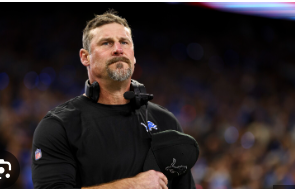
Dylan Walker: Breaking the Silence
Dylan Walker’s career has been one of promise, talent, and resilience. Over the years, he has become known for his speed, skill, and undeniable presence on the field. But beyond his athletic achievements, his story is one of personal growth, introspection, and the pursuit of mental wellness in a sport often criticized for its stoic masculinity.
Born and raised in Australia, Walker’s early life was shaped by rugby league, a sport ingrained in the country’s cultural fabric. His natural abilities on the field made him a standout from a young age, and it wasn’t long before he was recognized as one of the future stars of the game. But his journey to the top wasn’t easy, and the road to becoming the player he is today was littered with obstacles—both personal and professional.
What sets Walker apart from many of his contemporaries, however, is his willingness to break the silence surrounding mental health, something that has often been a taboo subject in rugby. Through his openness about his struggles, he has become a voice for others in the sport and beyond, encouraging athletes to confront the mental and emotional challenges they face. Dylan Walker is not only a skilled rugby player but also a symbol of courage and vulnerability in a world that frequently demands athletes to be superhuman.
#### The Rise of Dylan Walker
Dylan Walker’s entry into the National Rugby League (NRL) came through the South Sydney Rabbitohs, a club with a storied history and a passionate fanbase. From his debut in 2014, it was clear that Walker was a player to watch. His agility, speed, and ability to break through defensive lines made him one of the most exciting players on the field. He was fast, sharp, and creative, and it didn’t take long for him to establish himself as one of the best centers in the game.
However, behind the scenes, things weren’t always as perfect as they seemed. Despite his outward success, Walker’s mental health began to deteriorate. Like many athletes, he was caught in the trap of needing to perform at a high level constantly, and the pressure took its toll. His story isn’t unique, but the way in which he chose to confront these challenges is.
#### Mental Health and the Pressure of Performance
In the hyper-competitive world of professional sports, mental health is often overlooked. There’s an expectation for athletes to maintain peak physical condition, but the mental and emotional aspects of performance often go unnoticed. Rugby, like many sports, has a long-standing culture of toughness, where athletes are expected to be invulnerable. The stigma around vulnerability, particularly for male athletes, has prevented many from speaking out about their struggles.
Dylan Walker was no exception. As a rising star in rugby, he was often expected to “keep it together” no matter what. However, behind closed doors, Walker was battling with anxiety and depression, a reality that many fans were unaware of. He spoke about the difficulty of maintaining a perfect public image while privately struggling with his mental health.
In interviews, Walker described the overwhelming pressure to perform consistently and the toll it took on his well-being. “There were days where I didn’t feel like I could get out of bed, but I still had to go out and play,” he admitted. “The pressure to be perfect was suffocating, and there were times when it felt like I couldn’t win, no matter how hard I tried.”
Walker wasn’t alone in his experience. Many athletes face similar challenges, but the environment of professional sports often discourages open dialogue about mental health. It wasn’t until Walker made the brave decision to speak up that he began to break down some of these barriers.
#### Breaking the Silence
Walker’s decision to speak openly about his mental health struggles was groundbreaking for the sport. At a time when many players still shied away from addressing their emotions, Walker chose to break the silence. His vulnerability wasn’t just a personal victory but also a victory for all athletes who had been silenced by the pressures of their respective sports.
In interviews, Walker opened up about his journey with mental health, including the times when he felt completely overwhelmed. He spoke about how difficult it was to maintain a positive outlook when he felt isolated and alone in his struggles. “I thought I had to be strong all the time, but I realized that being strong means asking for help when you need it,” he said.
Walker’s decision to break the silence had a profound impact on the rugby community. His honesty encouraged other players to reflect on their own mental health and, in some cases, seek the help they needed. By publicly sharing his story, Walker helped to normalize the conversation about mental health in a sport where vulnerability had often been viewed as a weakness.
In a landmark moment, Walker teamed up with the *Rugby League Players Association* (RLPA) to promote mental health awareness within the sport. Together, they worked to create programs and initiatives aimed at providing players with better mental health resources and encouraging a culture of openness and support.
#### The Power of Vulnerability
Dylan Walker’s journey also emphasizes the power of vulnerability. In a world where athletes are often expected to present a façade of invincibility, Walker’s decision to show his true self was revolutionary. His vulnerability allowed him to connect with others in a way that wasn’t possible when he was trying to hide his struggles. It also allowed him to begin healing on a personal level.
Vulnerability isn’t easy, especially for those in the public eye. It takes courage to admit to personal struggles, particularly in a culture that values toughness and emotional control. Walker’s decision to embrace his vulnerability not only helped him personally but also contributed to a larger cultural shift within rugby and beyond. His example has encouraged other athletes, young and old, to speak out about their mental health, helping to create a more supportive environment for future generations.
Through his actions, Walker has shown that being open about one’s struggles doesn’t make someone weak—it makes them stronger. His vulnerability allowed him to regain control over his mental health, and it has inspired countless others to do the same.
#### The Road to Healing
While breaking the silence was a powerful step, it wasn’t the end of Walker’s journey. The road to healing was long and difficult, but it was a journey he was committed to undertaking. Over time, he learned to manage his mental health more effectively, seeking professional help and developing coping strategies to handle the pressures of the game.
One of the key aspects of Walker’s recovery was finding a balance between his personal life and his career. Rugby, while important to him, was no longer his entire identity. He began to prioritize his well-being and put his mental health first, something that had often been overlooked in the past. This shift allowed him to be a better player, but more importantly, a better person.
Walker’s resilience and dedication to his mental health were not only inspiring but also showed that it’s possible to find strength in the face of adversity. He used his platform to educate others about the importance of self-care and mental wellness, particularly in high-pressure environments like professional sports.
#### A Legacy of Change
As Dylan Walker’s career continues to evolve, his legacy extends far beyond his on-field accomplishments. He will undoubtedly be remembered as one of the great players of his generation, but perhaps his most lasting impact will be his work in breaking down the stigma surrounding mental health in rugby and other sports.
Through his advocacy, Walker has shown that true strength lies in acknowledging one’s vulnerabilities and seeking help when needed. His courage in speaking out has changed the way the rugby world views mental health, and his story continues to inspire those who are struggling in silence.
In a sport that often prizes physical strength above all else, Dylan Walker has demonstrated that mental resilience is just as important. He has used his voice to challenge the norms of the sport and has made significant strides in creating a more compassionate and understanding environment for future generations of players.
His story serves as a reminder that mental health is just as crucial as physical health, and that breaking the silence can lead to not only personal healing but also collective growth. Dylan Walker’s legacy will be one of not just athletic excellence, but of bravery, vulnerability, and the power of speaking up.
—
This piece covers the career, struggles, and impact of Dylan Walker, highlighting his efforts to normalize mental health discussions in the world of rugby. If you need adjustments or further elaborations, feel free to ask!







